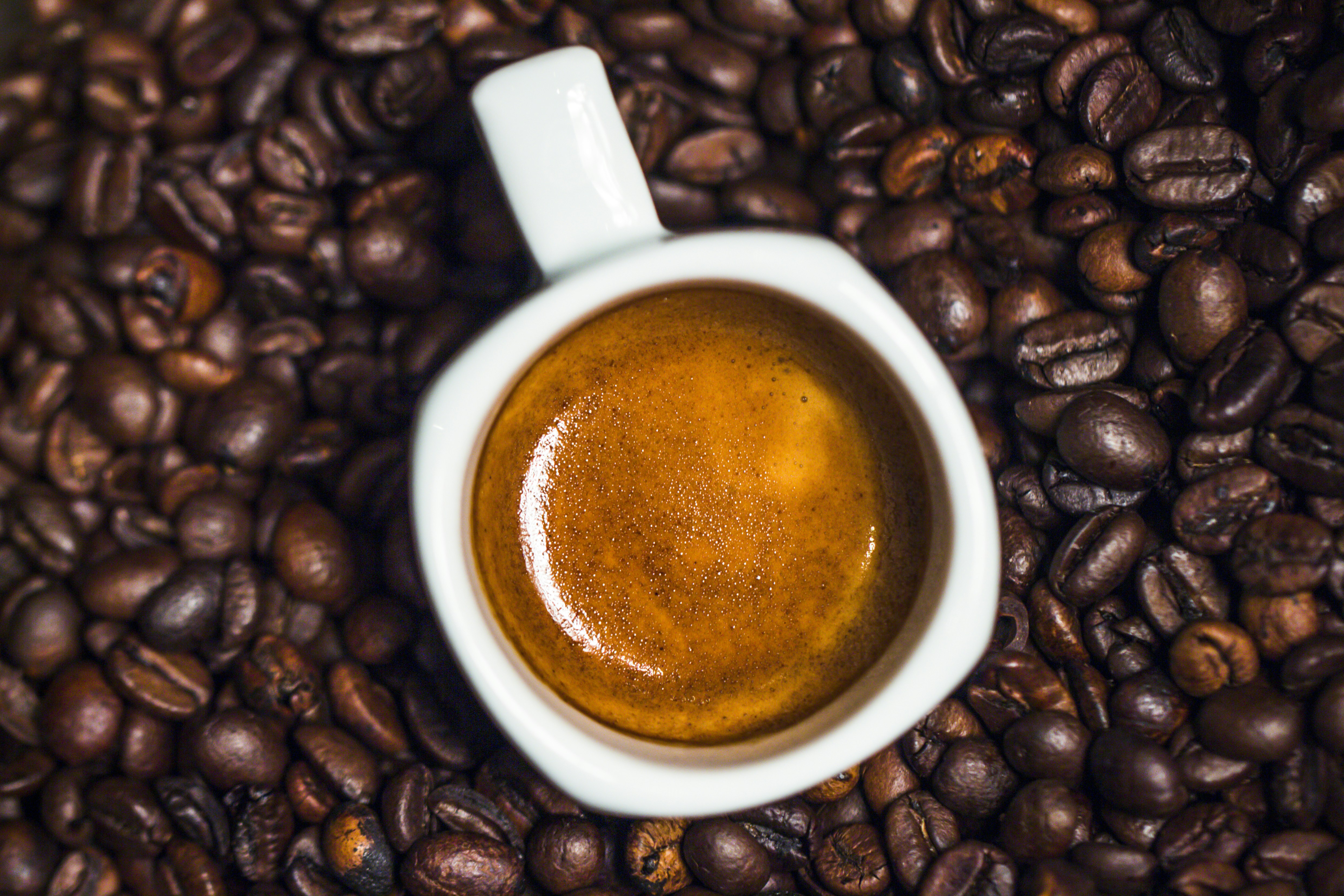Does Green Tea Contain Caffeine, And How Does It Compare To Coffee In Terms Of Caffeine Content?
In this article, we will explore the question of whether green tea contains caffeine, and if so, how its caffeine content compares to that of coffee. Understanding the amount of caffeine present in these beverages is of interest to many individuals, as it can impact their daily caffeine intake. By delving into the caffeine content of green tea and comparing it to coffee, we aim to provide valuable insights for those seeking to make informed choices regarding their beverage preferences and caffeine consumption.
Green Tea and Caffeine
What is green tea?
Green tea is a type of tea that is made from the leaves of the Camellia Sinensis plant. Unlike black and oolong teas, which undergo a fermentation process, green tea leaves are steamed or pan-fired to prevent oxidation. This process helps retain the tea’s natural green color and preserves the beneficial compounds found in the leaves. Green tea is known for its distinct taste and is widely consumed worldwide.
What is caffeine?
Caffeine is a natural stimulant that belongs to a class of compounds called xanthines. It is found in various plants, including coffee beans, tea leaves, and cacao beans. Caffeine stimulates the central nervous system, temporarily warding off drowsiness and restoring alertness. It is widely consumed in the form of coffee, tea, energy drinks, and certain medications.
Does green tea contain caffeine?
Yes, green tea contains caffeine. While green tea generally contains less caffeine than coffee, the specific caffeine content can vary depending on several factors, including the type of green tea, the cultivation method, and the brewing time.
How much caffeine does green tea contain?
The caffeine content in green tea can range from 20 to 45 milligrams per 8-ounce (240-milliliter) cup. Compared to coffee, which typically contains around 95 milligrams of caffeine per 8-ounce cup, green tea has a lower caffeine content. However, it is essential to note that these values are approximate and can vary depending on several factors, including the brand and brewing methods used.
Coffee and Caffeine
What is coffee?
Coffee is a brewed beverage made from roasted coffee beans, which are the seeds of the Coffea plant. It is one of the most commonly consumed beverages globally and is known for its rich flavor and energizing effects. There are various types of coffee, including espresso, cappuccino, Americano, and latte, each prepared using different brewing methods and ratios of coffee to water.
What is caffeine?
As mentioned earlier, caffeine is a natural stimulant found in coffee. It is responsible for the stimulating effect that coffee has on the central nervous system. The caffeine content in coffee can vary depending on the type of coffee bean, the brewing method, and the serving size.
How much caffeine does coffee contain?
The caffeine content in coffee can range widely depending on multiple factors. On average, an 8-ounce cup of brewed coffee contains around 95 milligrams of caffeine. However, the actual caffeine content can vary from as low as 30 milligrams to as high as 200 milligrams, depending on the factors mentioned earlier.
Types of coffee and their caffeine content
Different types of coffee may vary in their caffeine content. Here are the approximate caffeine contents of various popular types of coffee, based on an 8-ounce (240-milliliter) serving:
- Brewed Coffee: 95 milligrams
- Espresso: 63 milligrams
- Instant Coffee: 63 milligrams
- Decaffeinated Coffee: 2-12 milligrams
It is important to note that these figures are approximations and may vary depending on the brand, brewing method, and other factors.
Caffeine Content Comparison
Caffeine content in green tea vs. coffee
When comparing caffeine content, green tea generally contains less caffeine than coffee. While an 8-ounce cup of brewed coffee typically contains around 95 milligrams of caffeine, an 8-ounce cup of green tea contains approximately 20 to 45 milligrams of caffeine. This difference makes green tea a suitable alternative for individuals who are more sensitive to caffeine or prefer a milder stimulant effect.
How caffeine in green tea affects the body
Caffeine in green tea has a stimulating effect on the central nervous system, promoting alertness and temporarily warding off drowsiness. However, the lower caffeine content in green tea compared to coffee means that the stimulant effect is generally milder and more subtle. This can make green tea a preferred choice for those who want to enjoy the benefits of caffeine without experiencing the jitters or potential adverse effects associated with higher caffeine intake.
How caffeine in coffee affects the body
Due to its higher caffeine content, coffee tends to have a more pronounced and immediate stimulating effect compared to green tea. Coffee stimulates the release of neurotransmitters like dopamine and norepinephrine, which can lead to increased alertness, improved concentration, and a temporary boost in energy levels. However, it is important to note that excessive caffeine consumption or sensitivity to caffeine can result in side effects such as anxiety, restlessness, and insomnia.
Can green tea be a substitute for coffee?
Whether or not green tea can be a substitute for coffee largely depends on individual preferences and caffeine tolerance. For those who enjoy the bold flavor and strong stimulant effect of coffee, green tea may not fully replicate the experience. However, for individuals who are more sensitive to caffeine or prefer a milder stimulant effect, green tea can be a suitable alternative. It provides a gentle boost of energy and allows individuals to enjoy the potential health benefits associated with green tea consumption, as discussed later in this article.
Health Benefits of Green Tea
Antioxidants in green tea
Green tea is renowned for its high concentration of antioxidants. These compounds, such as catechins and epigallocatechin gallate (EGCG), have been studied extensively for their potential health benefits. Antioxidants help neutralize free radicals in the body, which are unstable molecules that can damage cells and contribute to various health conditions, including chronic inflammation, heart disease, and certain types of cancer.
Green tea and its impact on metabolism
There is some evidence to suggest that the compounds found in green tea, particularly EGCG, can potentially enhance metabolism and promote weight loss. EGCG has been shown to increase fat oxidation and improve insulin sensitivity, both of which can aid in weight management. However, it is important to note that green tea is not a magic solution for weight loss, and its effects may vary among individuals. A balanced diet and regular exercise remain the cornerstone of healthy weight management.
Green tea and its potential health benefits
Several studies have suggested potential health benefits associated with green tea consumption. These include a reduced risk of heart disease, lower blood pressure, improved brain function, and a decreased risk of certain types of cancer. However, it is crucial to understand that more research is needed to fully establish these benefits and determine the optimal dosage and duration of green tea consumption for maximum effect.
Health Benefits of Coffee
Antioxidants in coffee
Similar to green tea, coffee contains a variety of antioxidants, including chlorogenic acid and caffeic acid. These antioxidants play a role in reducing inflammation, protecting against oxidative stress, and potentially lowering the risk of chronic diseases such as cardiovascular disease and certain types of cancer. However, it is important to note that the antioxidant content can vary depending on the type of coffee bean, the roasting process, and the brewing method.
Coffee and its impact on alertness
Coffee is widely consumed for its stimulating effects on the central nervous system. The caffeine in coffee blocks the effects of adenosine, a neurotransmitter that promotes relaxation and drowsiness. By preventing adenosine from binding to its receptors, caffeine increases brain activity and promotes wakefulness. This is why many individuals rely on coffee to combat fatigue and enhance alertness.
Coffee and its potential health benefits
Numerous studies have examined the potential health benefits associated with coffee consumption. Moderate coffee consumption has been linked to a lower risk of certain diseases, such as type 2 diabetes, Parkinson’s disease, liver disease, and certain types of cancer. Coffee may also have a positive impact on mental health, with some studies suggesting a lower risk of depression and a reduced risk of cognitive decline and dementia. However, it is important to note that excessive consumption or the addition of high-calorie additives can negate these potential benefits.
Side Effects of Caffeine
Common side effects of caffeine consumption
While caffeine consumption can provide benefits, it is important to be aware of its potential side effects. Common side effects of caffeine consumption include increased heart rate, elevated blood pressure, restlessness, jitteriness, anxiety, difficulty sleeping, and digestive issues such as acid reflux or stomach discomfort. Individual sensitivity to caffeine can vary, and some people may be more susceptible to these side effects than others.
Caffeine sensitivity and its effects
Individuals can have varying levels of sensitivity to caffeine. Some individuals can consume higher amounts of caffeine without experiencing significant side effects, while others may be more susceptible to its stimulating effects. Factors that can influence caffeine sensitivity include age, body weight, genetics, overall health, and tolerances built up over time.
Factors that influence caffeine sensitivity
Several factors can influence an individual’s sensitivity to caffeine. People who are more sensitive to caffeine may experience stronger effects even with lower doses. Factors that can affect caffeine sensitivity include genetics, age, body weight, overall health, medication use, pregnancy, and tolerance built up over time. It is important for individuals to be aware of their own tolerance levels and adjust caffeine consumption accordingly to avoid any potential adverse effects.
Recommended Daily Intake of Caffeine
General guidelines for caffeine consumption
The general consensus among health organizations is that moderate caffeine consumption is safe for most healthy individuals. The U.S. Food and Drug Administration (FDA) recommends a daily caffeine intake of up to 400 milligrams for most adults. However, it is important to note that individual tolerance levels can vary, and some individuals may need to limit or avoid caffeine altogether due to certain medical conditions or sensitivity.
Recommended caffeine intake for different age groups
Caffeine recommendations can vary depending on age and other factors. Here are general guidelines for caffeine intake:
- Children and Adolescents: It is recommended that children and adolescents consume no more than 2.5 milligrams of caffeine per kilogram of body weight per day. It is important for parents to monitor and limit their children’s caffeine consumption, as excessive intake can lead to adverse effects such as restlessness, increased heart rate, and sleep disturbances.
- Adults: Most healthy adults can safely consume up to 400 milligrams of caffeine per day, which is equivalent to around four to five cups of brewed coffee. However, individual tolerance levels should be considered, and individuals with certain medical conditions or sensitivities may need to limit or avoid caffeine.
Caffeine limits during pregnancy and breastfeeding
Pregnant women are generally advised to limit their caffeine intake. The American College of Obstetricians and Gynecologists recommends that pregnant women consume no more than 200 milligrams of caffeine per day, as high caffeine intake has been associated with an increased risk of miscarriage and preterm birth. Similarly, breastfeeding women are advised to limit their caffeine intake, as caffeine can pass into breast milk and affect the baby’s sleep patterns and overall well-being. It is important for pregnant and breastfeeding women to consult with their healthcare provider to determine the appropriate caffeine limits for their specific situation.
Other Factors to Consider
Factors that affect caffeine content in beverages
The caffeine content in coffee and green tea can be influenced by several factors. These include the type and variety of coffee or tea, the brewing method, the duration of brewing, and the water temperature used. Additionally, certain products, such as energy drinks or caffeinated sodas, may contain added caffeine or other compounds that can enhance the stimulating effect.
Caffeine content in different types of green tea
The caffeine content of green tea can vary depending on the specific type and the brewing method. Matcha, a powdered form of green tea, can have a higher caffeine content due to the consumption of the whole tea leaf. Similarly, Sencha and Gyokuro, two popular Japanese green tea varieties, are known for their slightly higher caffeine content compared to other green teas. However, it is essential to note that the actual caffeine content can vary depending on the brand and brewing methods used.
Caffeine content in different types of coffee
The caffeine content of coffee can vary depending on multiple factors, including the type of coffee bean, the roasting process, the brewing method, and the serving size. Brewed coffee, espresso, and instant coffee typically have higher caffeine content compared to decaffeinated coffee, which has undergone a process to remove most of the caffeine. It is important for individuals to be mindful of their caffeine intake and adjust their choices accordingly based on their personal preferences and sensitivities.
Conclusion
In conclusion, both green tea and coffee contain caffeine, but their caffeine content differs. Green tea typically has a lower caffeine content compared to coffee, making it a suitable alternative for individuals who are more sensitive to caffeine or prefer a milder stimulant effect. Both green tea and coffee offer potential health benefits related to their antioxidant content, but further research is needed to fully establish these benefits. It is important for individuals to be aware of their own caffeine tolerances and adjust their consumption accordingly to avoid any potential adverse effects. As with any dietary or lifestyle choices, it is recommended to consult with a healthcare professional for personalized advice and recommendations.



Comments are closed, but trackbacks and pingbacks are open.